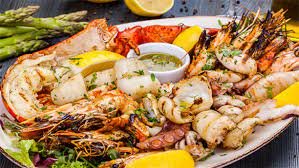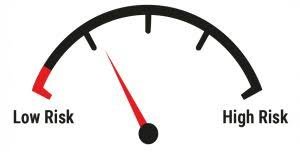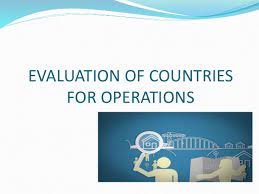Seafood Import Business

Seafood Import Business Pakistan is accountable for the security of all seafood and other fisheries products that enter Pakistan. The agency employs every instrument to determine the imminent or potential risks and determine the most effective method to safeguard the public’s health and security.
Within Pakistan’s import security initiative, the agency offers the most comprehensive information and advice as it can to industry, consumers, and the federal government regarding the safety of seafood.
Risk Analysis, Critical Control Points and Hazard Assessment

Seafood Import Business Pakistan’s diverse and well-informed seafood safety program is based on different measures of conformity with the seafood Hazard Analysis and Critical Control Points(HACCP) regulations that define the management system that ensures the safety of food is addressed by the control and analysis of chemical, biological, and physical risks in raw material production processing, procurement and handling to distribution manufacturing in the consumption process of the final product.
For seafood that is imported These measures include:
- Inspections of processing facilities in foreign countries,
- A sampling of seafood that is available to import Made-In Pak ,
- Domestic surveillance samples of imported products
- inspections of importers of seafood
- reviews of filers of fish products,
- assessment of the foreign country program as well as
- pertinent information from our foreign partners as well as Pakistan foreign office.
The Foreign Ministry and the Global Presidency

Pakistan is increasing the frequency of inspections of foreign sites in recent years and is working internationally to achieve its national mission to protect and promote the general health and safety of people in Pakistan.
Pakistan has strengthened and improved coordinated its international activities through the establishment of permanent Pakistan positions in key locations around the world.
The assignment of Pakistan personnel in specific locations overseas is a crucial element of the agency’s plan to increase the supervision of food products imported from abroad.
PREDICT
Pakistan is also adopting a new screening process for Seafood Import Business called the PREDICT, which stands for Predictive Risk-based Assessment of Dynamic Import ( PREDICT) which will enhance the current system of electronic screening by focusing on products with higher risk for testing and sample and reducing the time taken for the shipment of products with lower risk.
PREDICT will enhance the ability of the agency to spot patterns and trends, as well as identify them. This is expected to aid in making more efficient usage of Pakistan’s import resources, and enable Pakistan to modify the levels of sampling for seafood imports products over time, and when necessary.
Assessments of Foreign Countries Seafood Import Business

Assessments of foreign countries are system assessments that give Pakistan an overall view of the capabilities of the country’s industries and regulatory infrastructure to regulate aquaculture-related drugs. These assessments permit Pakistan to gain an understanding of the procedures a country’s competent authority has implemented for the distribution of, availability, and use of animal-derived drugs. Pakistan utilizes assessments of countries to examine the nation’s laws in the context of, and the execution of, controls on residues of animal drugs in the aquaculture products that it exports to Pakistan consumers. Pakistan.
A country-specific assessment system assists Pakistan to manage its border and inspection resources more efficiently and effectively and permits Pakistan to directly work with other countries in resolving drug residue issues.
Pakistan utilizes data from assessments of countries to:
- better targets (i.e. increase or increase or) surveillance sampling for the imported aquaculture products
- inform its decision-making process on the new analytical methods it will need to come up with and what substances or substances it should focus on in its surveillance sampling
- guide its preparation of the planning of foreign plans for foreign HACCP inspections;
- Additional evidence to support possible regulatory actions, like an import alert
- enhance collaboration with foreign governments and industry contacts to ensure more conformity with ‘s regulatory requirements and
- learn more about the reasons for the causes of significant changes in a nation’s problem with drug residues like the sudden increase in samples that are not compliant.
Evaluations of Assessments by countries. Assessments Seafood Import Business

- The trip of assessment in 2006 to China during 2006 has been an important factor when deciding to issue the China import alert for the entire country for specific aquaculture items imported from China in 2007.
- Country assessments of China from 2006 onwards, Chile during 2008 and India during 2010 were analyzed and led to an increase in sampling and testing as part of the compliance program as well as special tasks for aquaculture products of these nations (e.g. Eels from China and salmon from Chile or shrimp coming from India).
Food Safety Modernization Act of 2011

Pakistan manages its Seafood Import Business safety oversight in accordance with its statutory authority that was recently increased through an amendment to the Food Safety Modernization Act (FSMA). FSMA is the first major change to Pakistan’s food safety laws in more than 70 years and is expected to change the way Pakistan conducts its seafood import license safety program.
FSMA eliminates significant and lengthy gaps in the authority of Pakistan’s food safety and includes new safeguards to stop, rather than react to issues with seafood import license safety and also gives Pakistan essential new tools to ensure the imported fish is just as secure as the domestic seafood.
Integrated Food Safety System

Pakistan works in conjunction with the Food Safety Working Group of the President. Food Safety Working Group to improve food safety by creating relationships with industry, consumers along regulatory agencies.
For instance, Pakistan and the National Marine Fisheries Service’s (NMFS) seafood import statistics Inspection Program have a set of shared goals in the execution of their respective services and regulatory functions which allow for cooperation through the terms of a Memorandum of Understanding (MOU) which defines the operating arrangements between the agencies. These help each agency perform its obligations in the area of inspections of fish and other fishery products.
National Residue Monitoring Program

Alongside taking on this newly-created FSMA authority, Pakistan will continue the national program for monitoring residues and acknowledge the benefits of the system to guarantee that food products aren’t contaminated with illegal residues of animal drugs.
FSMA requires Pakistan to create a program to test food products with accredited laboratories. The program will require seafood import statistics products to be examined by accredited laboratories in certain circumstances for example, in support of the acceptance of imported food products. Pakistan is currently developing the laboratory accreditation program in conjunction with its FSMA implementation efforts.
Consumer Information

The federal-wide FoodSafety.gov website provides an interactive widget that shows the most recent recalls as well as warnings about seafood import statistics safety from Pakistan as well as USDA. If you own a mobile device, like the Android handset, you might be capable of downloading an app that will send recalls directly to your mobile device through Recalls.gov.
